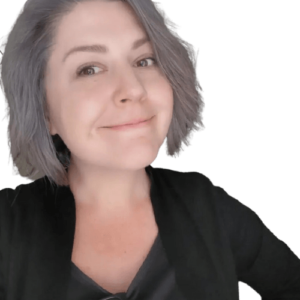 Ménière’s disease (MD) is a condition that affects the inner ear and can cause hearing and balance problems. People with this disease may experience dizziness (vertigo), a constant ringing or buzzing sound in one ear (tinnitus), a feeling of pressure in the ear, and trouble hearing low sounds. It usually only impacts one ear.
Ménière’s disease (MD) is a condition that affects the inner ear and can cause hearing and balance problems. People with this disease may experience dizziness (vertigo), a constant ringing or buzzing sound in one ear (tinnitus), a feeling of pressure in the ear, and trouble hearing low sounds. It usually only impacts one ear.
Ménière’s disease occurs most often in people between the ages of 40 and 60, but it can also start from as young as 20. While it is rare, children can sometimes develop Ménière’s as well. Both men and women seem to experience the disease at similar rates.
MD cannot be cured, but people can often control their symptoms with medicine, changes in their daily habits, or sometimes surgery in uncommon situations.
What are the symptoms of Ménière’s disease?
Ménière’s disease causes symptoms that happen in episodes or attacks, which include vertigo, a condition that makes people feel dizzy and unsteady. Often, the feeling can lead to nausea or even vomiting.
People with this condition may also notice their hearing becomes muffled before an episode starts. Hearing loss can come and go as the disease progresses, but it may also worsen over time and become permanent. Tinnitus is another symptom, which is when someone hears a ringing or buzzing sound in their ears. People may also feel a sense of pressure or fullness in the ear, which is called aural fullness.
In the early stages of the disease, people might experience either a vertigo attack or hearing-related symptoms on their own. As the disease gets worse, they usually develop all the symptoms together.
Some people with severe Ménière’s Disease, usually in its later stages, may experience “drop attacks,” also called Tumarkin attacks. This happens when they suddenly fall without passing out.
What are the causes of Ménière’s disease?
The cause of Ménière’s disease is still unclear. Some think it might happen because of too much fluid, called endolymph, building up in the inner ear. This condition is known as endolymphatic hydrops.
In the inner ear, endolymph helps the brain keep track of the position of the head and body. When the head moves, the fluid flows through the inner ear and triggers tiny sensors that send signals to the brain. However, with endolymphatic hydrops, there is too much fluid, which interferes with balance and hearing signals.
Endolymphatic hydrops is often seen in people with Ménière’s, but the exact connection between the two isn’t fully understood. For a long time, it was believed to cause MD. However, recent research shows that some people have this fluid build-up without showing any symptoms of MD. Right now, it’s viewed as a characteristic of Ménière’s, but not necessarily the reason it happens.
Diagnosis
The doctor will talk to the patient about their symptoms and health history. The disease may be diagnosed if a person experiences two or more episodes of vertigo, each lasting between 20 minutes and up to 24 hours.
Doctors may also recommend tests to figure out what’s causing symptoms. Since there isn’t a specific test for Ménière’s disease, they often need to check for other conditions with similar signs. This could include hearing tests, balance tests, or even X-rays.
How is Ménière’s disease treated?
There’s currently no cure for Ménière’s disease, but there are treatments that can help manage the symptoms. Making some changes to daily habits may also help lower the chances of having an attack. Doctors typically begin with simple treatments and move to other options based on how well they work.
First line treatments
The easiest way to start managing MD is by making changes to diet and lifestyle. Eating less salt can help reduce fluid buildup, and avoiding things like alcohol, caffeine, and tobacco may also make a difference. Getting better sleep and lowering stress levels can help, too. Many people say these changes have helped them have fewer attacks.
The main medicines used first are:
Agiserc (betahistine) is a medicine that helps improve blood flow in the inner ear, which can reduce dizziness and the likelihood of a vertigo attack.
Diuretics such as Moduret are medications that help reduce the amount of fluid in the body. They are often used based on the idea that decreasing fluid can help with conditions like endolymphatic hydrops.
Medications for vertigo or nausea can help ease dizziness and upset stomach during an episode. Drugs like benzodiazepines or phenothiazines (such as prochlorperazine) are sometimes prescribed, but they should only be used for a short time owing to their negative side effects.
Further treatment options
Doctors can treat vertigo by injecting medicine, like steroids or gentamicin, directly into the middle ear. This method can help reduce vertigo symptoms. The effects typically last a few months.
Surgical treatments can help with inner ear problems like fluid buildup. Endolymphatic sac surgery works to reduce this fluid. Other surgeries for vestibular rehabilitation, like labyrinthectomy and vestibular neurectomy, involve removing or damaging the part of the inner ear causing the symptoms. These procedures are often the most effective for controlling vertigo in patients who haven’t improved with other treatments. A doctor or neurologist can recommend the best treatment based on how often the attacks happen and how the condition is developing.
People with Ménière’s disease may lose their hearing in the affected ear over time. To cope with this, they often use hearing aids.
Ménière’s disease is a progressive condition, meaning it gets worse over time. For some, it progresses slowly, while for others, it may worsen more quickly. In the beginning, symptoms and hearing loss may go away between episodes, but over time, hearing loss becomes permanent, and constant ringing in the ears, known as tinnitus, develops.
Most people with Ménière’s disease can live active, normal lives, but some have a harder time managing. How someone handles it depends on how severe their symptoms are and how well they respond to treatment.
FAQs
Who usually gets Ménière’sdisease?
Ménière’s disease can affect anyone, regardless of age or gender. However, it is most commonly diagnosed in adults between 40-60 years old.
Is Ménière’s disease a brain problem?
No, Ménière’s disease is not considered a brain problem. It is believed to be caused by an imbalance of fluid in the inner ear, specifically in the vestibular system, which is responsible for balance and spatial orientation. The exact cause of this imbalance is still unknown.
Does caffeine make Ménière’s disease worse?
This question has no definitive answer, as it can vary from person to person. Some individuals with Ménière’s disease may find that caffeine worsens their symptoms, while others may not experience any difference.
Should I see an ENT or neurologist for Ménière’s?
It is recommended to see both an ENT (ear, nose, and throat) specialist and a neurologist for Ménière’s disease. An ENT specialist can diagnose the condition and provide treatment options such as medication or dietary changes, while a neurologist can help manage any related neurological symptoms or issues.

















